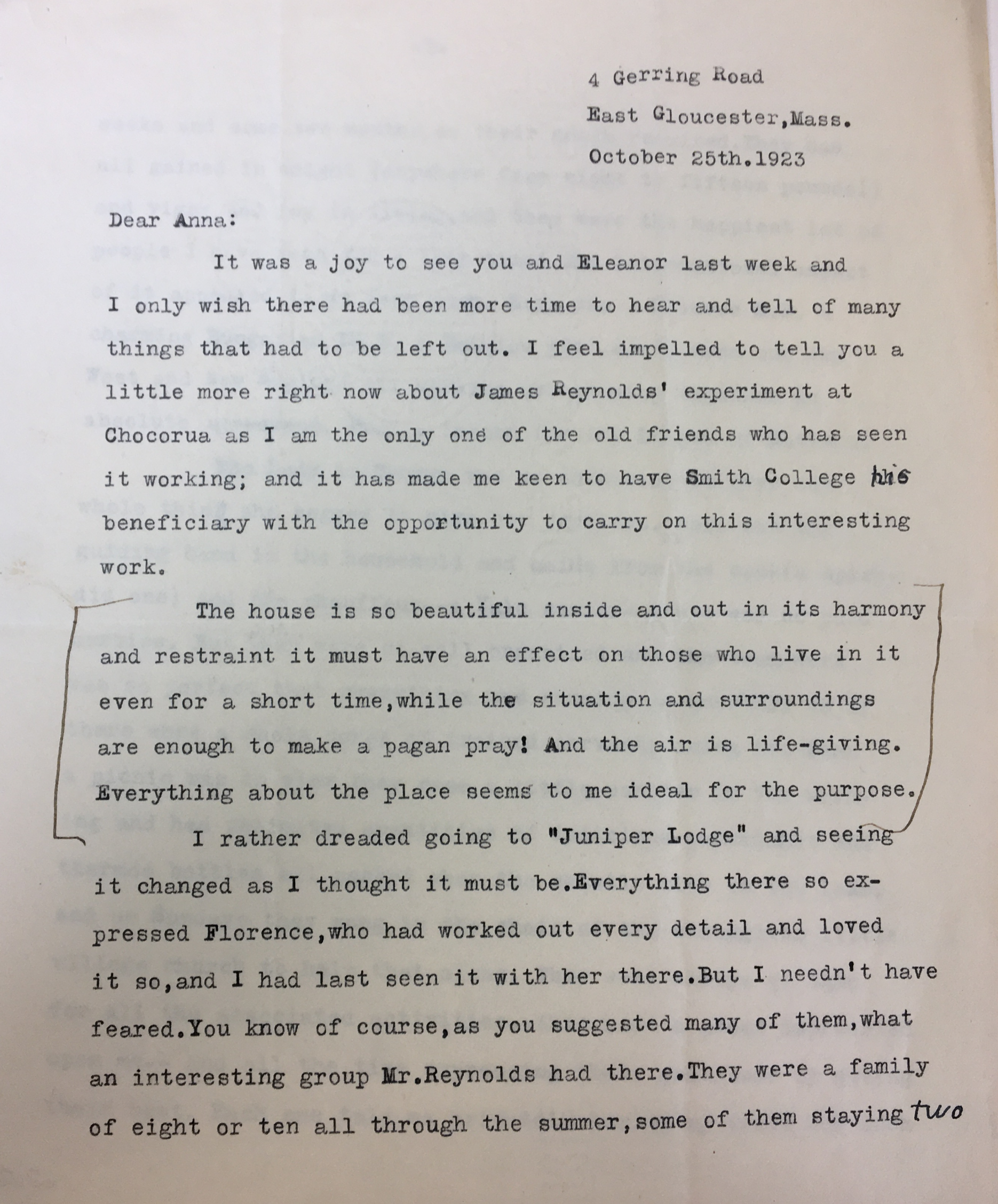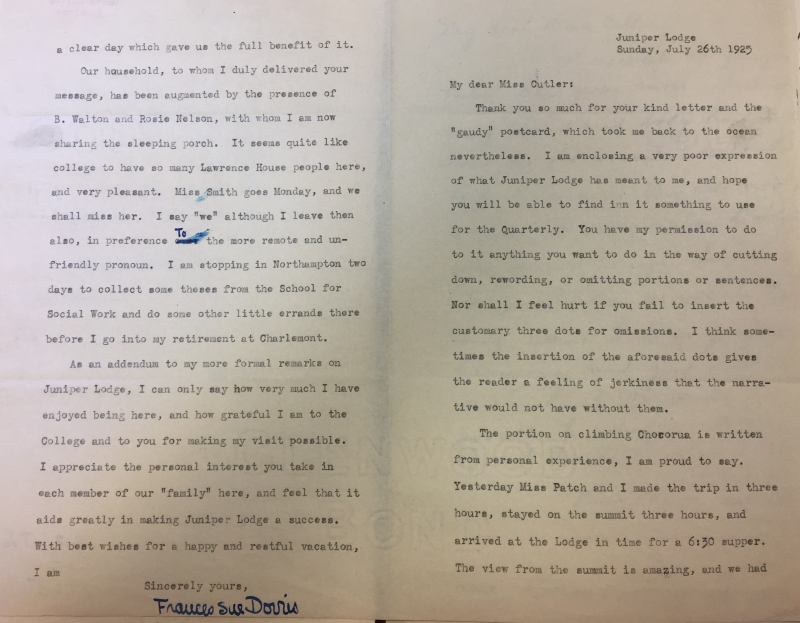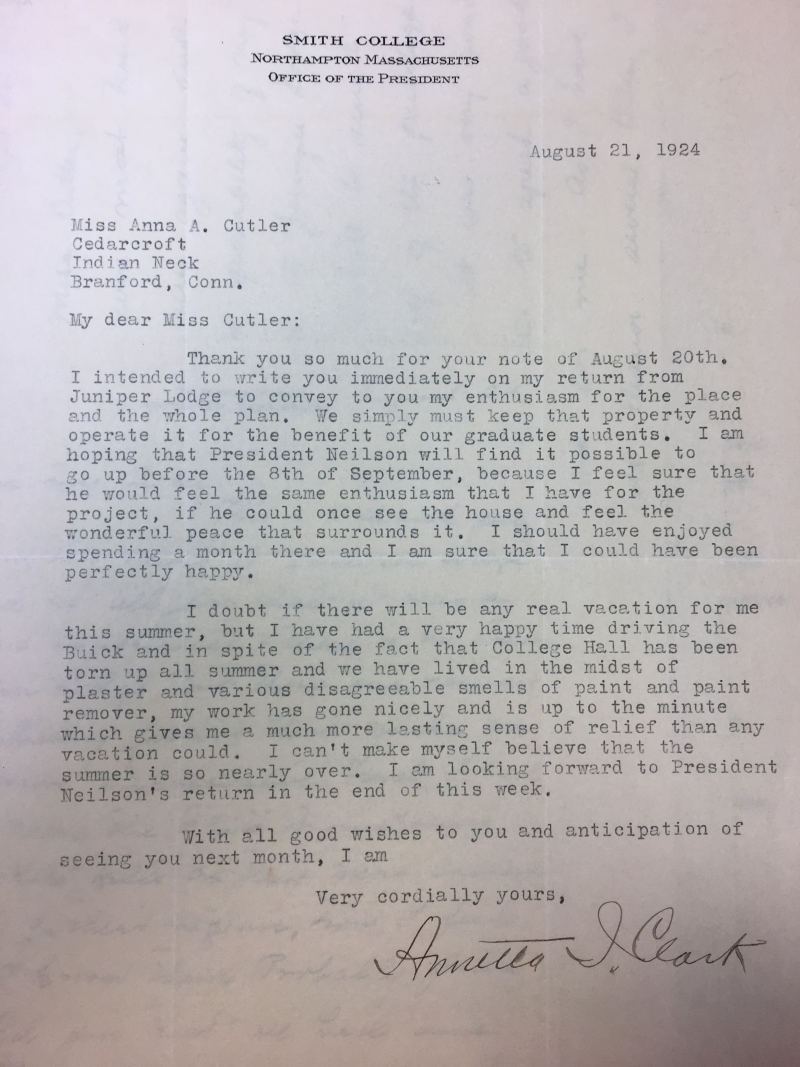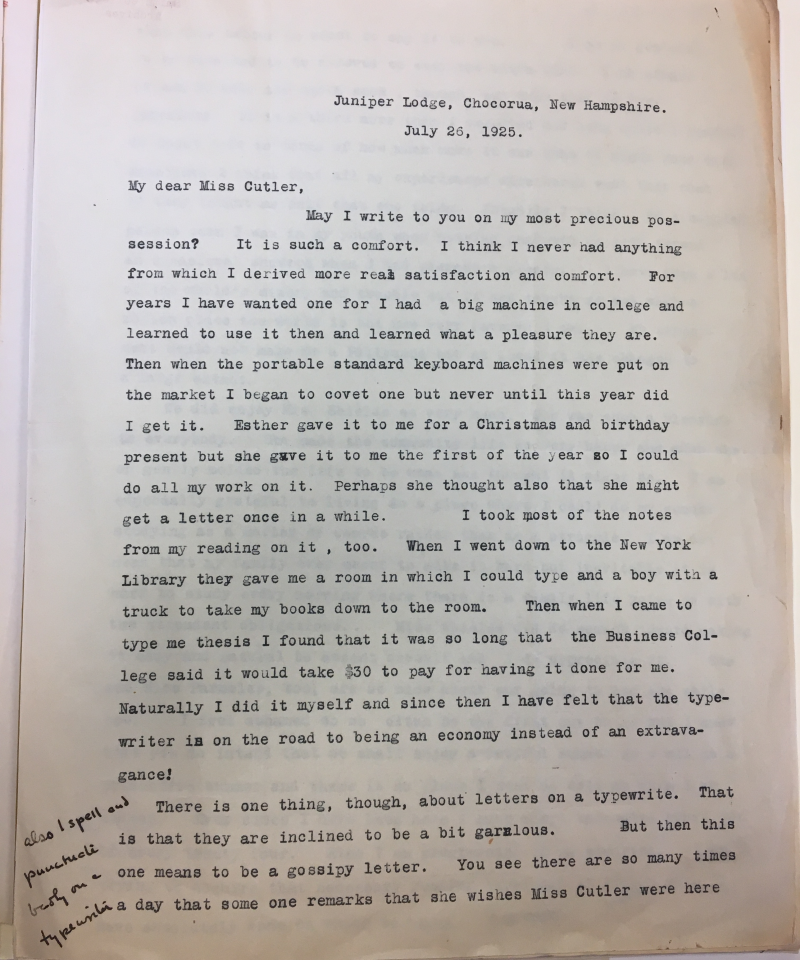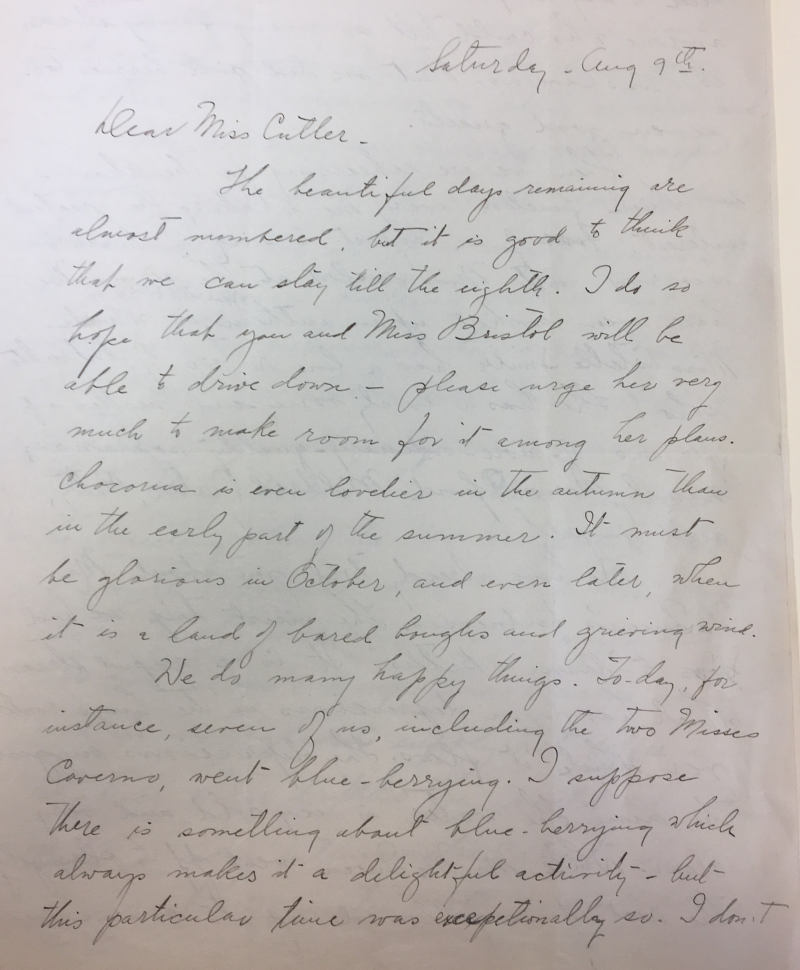Transcription
4 Gerring Road
East Gloucester, Mass.
October 25th, 1923.
Dear Anna:
It was a joy to see you and Eleanor last week and I only wish there had been more time to hear and tell of many things that had to be left out. I feel impelled to tell you a little more right now about James Reynolds’ experiment at Chocorua as I am the only one of the old friends who has seen it working; and it has made me keen to have Smith College his beneficiary with the opportunity to carry on this interesting work.
The house is so beautiful inside and out in its harmony and restraint it must have an effect on those who live in it even for a short time, while the situation and surroundings are enough to make a pagan pray! And the air is life-giving. Everything about the place seems to me ideal for the purpose.
I rather dreaded going to “Juniper Lodge” and seeing it changed as I thought it must be. Everything there so expressed Florence, who had worked out every detail and loved it so, and I had last seen it with her there. But I needn’t have feared. You know of course, as you suggested many of them, what an interesting group Mr. Reynolds was there. They were a family of eight or ten all through the summer, some of them staying two weeks and some two months, as their needs required. They had all gained in weight (anywhere from eight to fifteen pounds!) and vigor, and joy in living, and they were the happiest lot of people I have seen for a long time! The International aspect of it appealed to me very much. Here was a Chinese M.D. a charming Hungarian Ph.D. a Belgian girl, girls from our own West and New England all working and playing together in absolute agreement. What a lesson for the League of Nations!
The Lady in Charge was so enthusiastic over the whole thing she begged to give her services. Hers was the guiding hand in the household and aside from the cook (a splendid one) and the chauffeur–a Yale senior–there was no paid service. But they were so well organized and the team-work was so perfect that everything was running as smoothly as if there were a whole corps of trained servants doing it. When a picnic was in view they rose a little earlier in the morning and had unlimited quantities of delicious sandwiches and thermos bottles all packed when the whistle blew on the lake, and on Sundays they sang in the choir of the struggling little village church to help that along. They were always on time for all the associated activities–this made a great impression upon me–and all the time expressing their gratitude by giving their best. Each one told me privately during my visit how much the summer had meant to her. “Mr. Reynolds shared everything he had with us, even his friends,” was their appreciative comment. The little Chinese lady, of a degree of culture before we of the Western world might bow, told me: “I did not know there were such homes in America–and I did not know such unselfishness exeest in this world!
Mr. Reynolds’ friends in the neighborhood, who are devoted to him and to the memory of his wife, were very kind in welcoming the students to Chocorua, and so he invited them all, far and near, to meet his house-hold before their breaking up. The girls made the house lovely with branches from the woods,m and their eagerness to have me tell them just how Mrs. Reynold’s arranged things, and to have everything as she loved it was beautiful to see. About fifty people came,–Harvard professors and their wives, scientists and their daughters, Radcliffe trustees, the charming next-of-kin of William James–and the girls were so absorbed in trying to express their feelings in acts of hospitality that they were perfectly unself-conscious and the tea was delightful. To see that house filled in such a happy way made me feel that Florence lived again “in deed and thought as truly as in His Heaven” and that it was doing for those girls a work which will be a perpetual blessing.
If Mr. Reynold’s gift can eventually be made to carry on in the spirit in which he has conceived and started it, it will be worthy of the best College in the world, which of course is–Smith!
Affectionately yours,
Helen Cleats Pilueau [?]
[Letter to Anna from Helen Cleats Pilueau, 1923, Smith College Archives, Buildings Records, Box 219, Juniper Lodge, A – Correspondence.]
